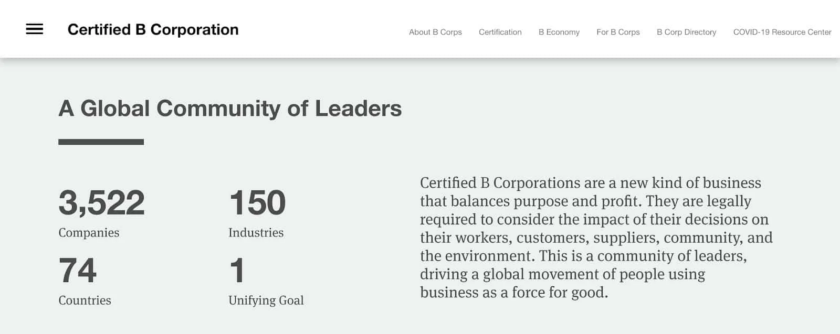
What exactly is Social Entrepreneurship? Does the phrase apply to social media companies? (No.) Has networking anything to do with it? (Nope.)
In conclusion, social entrepreneurship is an exhilarating method to earn while simultaneously having a great impact on the globe.
Almost seems too wonderful to be true, don’t you think? Thank goodness, it’s not.
You will discover all there is to know about social entrepreneurship in this post. We’ll go over its principles, advantages, real-world applications, how to launch a social enterprise, and more.
Let’s start now.
What is Social Entrepreneurship?
The act of conducting business in support of a charitable purpose is known as social entrepreneurship. Social businesses aim to increase revenues while enhancing their beneficial influence on a particular social issue. These firms are legitimate enterprises that generate revenue. Social enterprises, on the other hand, are primarily concerned with helping society, much like a charity or non-profit.
Four Categories of Social Entrepreneurship
The phrase “social entrepreneurship” is broad and covers a wide range of organizations. Here are four examples of social entrepreneurship that show how it frequently takes shape.
1. Cooperatives
Community grocery stores and credit unions are examples of cooperative businesses that exist to serve the interests of their members by addressing their social, economic, and cultural requirements.
2. Social Businesses
Businesses known as “social firms” offer jobs to groups of people who have severe barriers to employment, such as the disabled
3. Socially Conscious Businesses
Businesses that carry out daily activities in accordance with a social mission are said to be socially responsible. For instance, the outdoor clothing company Patagonia develops goods that are repairable from ethical suppliers.

4. For-Profit Companies that Have a Social Impact
This kind of social entrepreneurship refers to profit-driven firms that promote awareness of and make donations to social concerns. Warby Parker, for instance, distributes spectacles and other medical supplies to people in need.
5 Benefits of Social Entrepreneurship
Social businesses are by their very nature committed to making a positive difference in the world. The fact that social companies will have less money than their rivals to reinvest in growing the business at initially may appear to be a disadvantage in business.
However, social enterprises may have an advantage over conventional corporations due to the various advantages of social entrepreneurship. These are the first five.
1. Unity and Meaning
When the primary objective is to increase profits for corporate investors, it can be difficult to inspire staff.
However, a lot of people have strong feelings about social problems including sexism, racism, poverty, and human rights. Because of this, social entrepreneurship makes it simple to unite individuals around a single objective.
Social entrepreneurs and their team members may remain focused, motivated, and committed to success with the support of meaning and unity.
2. Strong Branding
Social enterprise radiates generosity and good will. This energy may help draw customers who enjoy supporting businesses that work to address social issues.
Particularly considering that a staggering “86% of millennials agree that corporate success should be assessed in terms of more than simply financial performance,” according to Deloitte’s 2018 survey on The Rise of the Social Enterprise.
The creator of the social entrepreneurship shoe company TOMS, Blake Mycoskie, said:
3. Positive media attention
“Our clients are thrilled to participate in what we’re doing. Most people who wear Toms will not recall an advertisement when asked how they first learned about us; instead, they will claim a friend told them about us.
Social businesses have the chance to create brand narratives that captivate the attention and imagination of periodicals and influencers with broad audiences. The free publicity that social entrepreneurs can get from these stories will help them succeed and spread the word about their causes.
4. Possibilities for Strategic Alliances
Many social entrepreneurs collaborate with nonprofits, governmental agencies, and other for-profit businesses because of their common missions. These alliances support social companies’ growth in brand awareness, impact, and, of course, bottom line.
5. Recognition, Grants, and Assistance Systems
There are numerous organizations that provide grants, investments, or certificates to support social companies.
Social enterprises, for instance, are eligible to qualify for Benefit Corporation status.
Through a dedication to openness and ethical business practices, this B-Corp accreditation assists social companies in establishing and maintaining trust. Among other advantages, accreditation can assist ethical firms in standing out from rivals.

What Is a Social Entrepreneur?
Someone who creates a business with the intention of having a positive social impact is known as a social entrepreneur. As Executive Vice President of Microsoft Global Sales Jean-Philippe Courtois put it, “Social entrepreneurs are people who have extraordinary enthusiasm to do good.”
Social entrepreneurs, as opposed to typical business owners, have two main objectives. “Being a social entrepreneur is a balancing act between growing and sustaining a business while simultaneously growing the company’s potential to give back,” says Lauren Bush, CEO and co-founder of FEED Projects.
What is the Primary Goal of the Social Entrepreneur?

The phrase “social entrepreneur” was first used by Bill Drayton, who also stated that “the authentic social entrepreneur’s life goal is to improve the world.” But social entrepreneurs frequently assess their performance in terms of the triple bottom line: social, environmental, and financial.
- Social: The capacity of the company to influence social concerns and bring about constructive change.
- Environmental: The company’s carbon footprint and effects on the environment.
- Economic: In order to operate and expand, social companies must generate a profit.
Three Motivating Cases of Social Entrepreneurship
Here are three examples of social entrepreneurship to assist clarify the features and traits of this kind of firm.
1. TOMS
Possibly the best-known example of social entrepreneurship is TOMS.
The original one-for-one company, founded in 2006 by well-known social entrepreneur Blake Mycoskie, was this social enterprise, which donated a pair of shoes to a less fortunate child for every pair sold.
TOMS has given away more than 100 million pairs of shoes since 2006.
To help individuals in need receive eye care and spectacles, this social venture introduced TOMS Eyewear in 2011. In order to assist in providing sustainable water systems to individuals without access to clean water, the firm also established TOMS Roasting Co. in 2014.
Today, the business donates $1 for every $3 it makes.
2. LSTN
Premium headphones are sold online by LSTN Sound Co. which also gives a portion of its earnings to the Starkey Hearing Foundation to aid in hearing rehabilitation.
After viewing a video of a 29-year-old lady hearing herself for the first time, successful social entrepreneurs Bridget Hilton and Joe Huff decided to launch their own company.
Through the Starkey Hearing Foundation, these leading social entrepreneurs have so far contributed to the provision of hearing aids to more than 30,000 individuals worldwide.
3. Love Your Melon
A charitable venture called Love Your Melon exists to enhance the lives of kids fighting cancer. In particular, the business sells hats and contributes half of its proceeds to help pediatric cancer patients and research.
More than 7.2 million dollars have been donated to date in the fight against pediatric cancer through Love Your Melon, and over 200,000 hats have been provided to kids facing the disease.
10 Characteristics of Social Entrepreneurs
A lasting social venture that improves people’s lives can be difficult to develop. Here are 10 traits that social entrepreneurs often have and that can help them succeed.
1. Business-Savvy
Social companies are fundamentally businesses and because of this, social entrepreneurs who want to flourish must be business-savvy.
It’s imperative that social entrepreneurs understand how to determine market demand, locate and research a target market, and develop appealing goods and services.
According to Gayle Tzemach Lemmon, a New York Times bestselling author, “A social entrepreneur seeks market-based solutions for change. Because without a viable, market-based solution, you have nowhere to go.
Additionally, social entrepreneurs must understand how to finance or bootstrap enterprises and manage finance.
2. Hard-Working
Beginning a business can be difficult enough. However, social entrepreneurs may also confront challenges include managing transparency, allocating funding to charitable purposes, and scaling with lower returns available for reinvestment.
It follows that social entrepreneurs will have to put in a lot of effort to realize their goals and have an influence.
3. Resilient
Success in business that lasts always takes time. If social entrepreneurs want to have an impact, they must be tenacious and persistent in the face of difficulty.
4. Generosity
Social entrepreneurs aren’t solely motivated by celebrity or wealth. Social entrepreneurs give generously to people in need, are altruistic, and care about the well-being of others.
This generosity and sense of purpose come from compassion, which is the capacity to perceive another’s suffering and the desire to lessen it.
5. Cooperation
Rarely do social entrepreneurs work alone. Instead, they work together to multiply their impact. Co-founders, staff members, consultants, investors, clients, nonprofit organizations, and local governments could all need to work together as social entrepreneurs.

6. Motivating and Enthusiastic
Since teamwork is essential for success, social entrepreneurs must motivate and enlist others in their cause. Their enthusiasm is essential for persuading people to support the cause and advance the social venture.
7. Associated
Social entrepreneurs frequently have strong ties to their neighborhoods. Their compassion is built on a foundation of connection. Additionally, social entrepreneurs can locate the proper people to assist them in advancing their idea by tapping into their active networks of friends and coworkers.
8. Cultural Controversy
Successful businesspeople frequently defy expectations and forge their own paths. For instance, many well-known businesspeople, like Mark Zuckerberg, Steve Jobs, and Bill Gates, are college dropouts.
Social entrepreneurs might perhaps be more anti-cultural. Social entrepreneurs, unlike the majority of businesspeople, aren’t in it for the money. They have distinctive values and don’t hesitate to bravely uphold them.
9. Ingenious and Creative
It’s rarely an easy task to change social concerns for the better. Social companies encounter a variety of difficulties that call for imaginative problem-solving and creativity on the part of social entrepreneurs.
10. Flexible
According to the scientist Charles Darwin, neither the smartest nor the strongest of the species survive. It is the one that can adjust to change the best.
No matter how you feel about evolution, this concept still applies to business. Consider Blockbuster Video vs. Netflix as an example of how older, more established businesses are routinely ousted by younger, more flexible ones.
When attempting to resolve such difficult problems, social entrepreneurs must be very adaptive to changes.
Step-by-Step Guide for Starting a Social Enterprise
Do you want to start a social business? Here are seven steps to get you started if you’re wondering how to start a social enterprise.
1. Determine the Cause
Priorities first You must decide which social issue you want to aid in resolving.
Do you wish to assist people in getting access to wholesome food, medicine, and water? Do you wish to assist the poor, the ill, or those who are being sold into modern-day slavery?
There are numerous social challenges that require your assistance. However, it’s ideal to begin with a single, modest objective and then expand from there. Remember that TOMS started out by trying to provide shoes for poor kids; the firm didn’t start expanding until after a certain amount of success.
2. Generate ideas for social entrepreneurship
Since social enterprises are businesses, you must find a way to generate revenue to support your objectives.
Start coming up with business concepts. With Shopify, you may start selling goods online, create an app, or provide consultancy services (just like LSTN and Love Your Melon).

3. Organize How to Make a Difference
Everything you sell should ideally support or somehow relate to your purpose. For illustration, you could:
- Adopt the one-for-one business model used by Warby Parker and TOMS. If you sell outdoor equipment, you might consider giving a mosquito net to someone who is at risk of contracting malaria.
- For those in your community who are unable to obtain employment, create jobs. For instance, you may collaborate with local disabled persons to produce and market goods online.
- Promote virtuous products. Perhaps you could start selling eco-friendly, fair-trade, and organic goods and donate a portion of your proceeds to an initiative promoting environmental sustainability.
4. Compile everything and work out the details
The next step is to probe further by posing inquiries like:
- What will the charges be and where will I get my supplies from?
- What will my profit margins be, and how much of it will I donate to a good cause?
- How will I determine whether my social venture is a success?
- In order to clarify the “what,” “why,” and “how” of your social company, create an elevator pitch. The cornerstone of your brand and business will be this pitch.
5. Check Your Concept
Run a few tests on your social entrepreneurship concept before investing.
“We must understand what customers really want, not what they claim they want or what we think they should want,” The Lean Startup author Eric Ries remarked.
Promote your idea and brand on social media, test the things you intend to sell, and sell a modest quantity of goods to get customer feedback.
Frequently Asked Questions
1. How can business owners impact their neighborhood?
As you grow and improve your business, forge strong ties with these suppliers and partners to establish a good reputation. A town can be improved by bringing in more foot traffic and tourists by opening new companies, purchasing additional properties, or even creating green spaces like parks.
2. What benefits may social entrepreneurship provide to the community?
For individuals who are struggling, social entrepreneurs offer access to jobs, food, affordable electricity, and other essential services. Businesses that collaborate with and assist social entrepreneurs are thought to improve the lives of close to 1 billion people worldwide.



